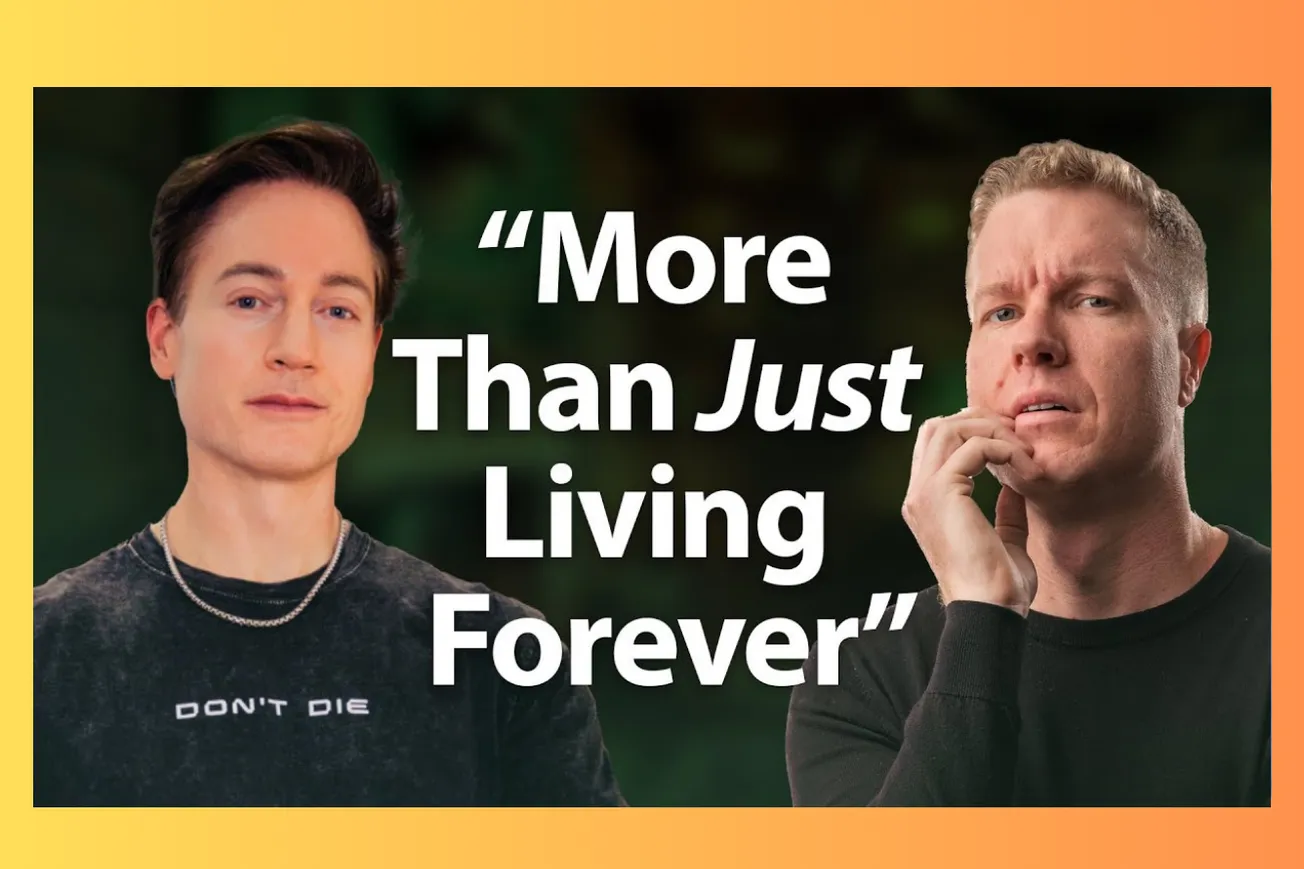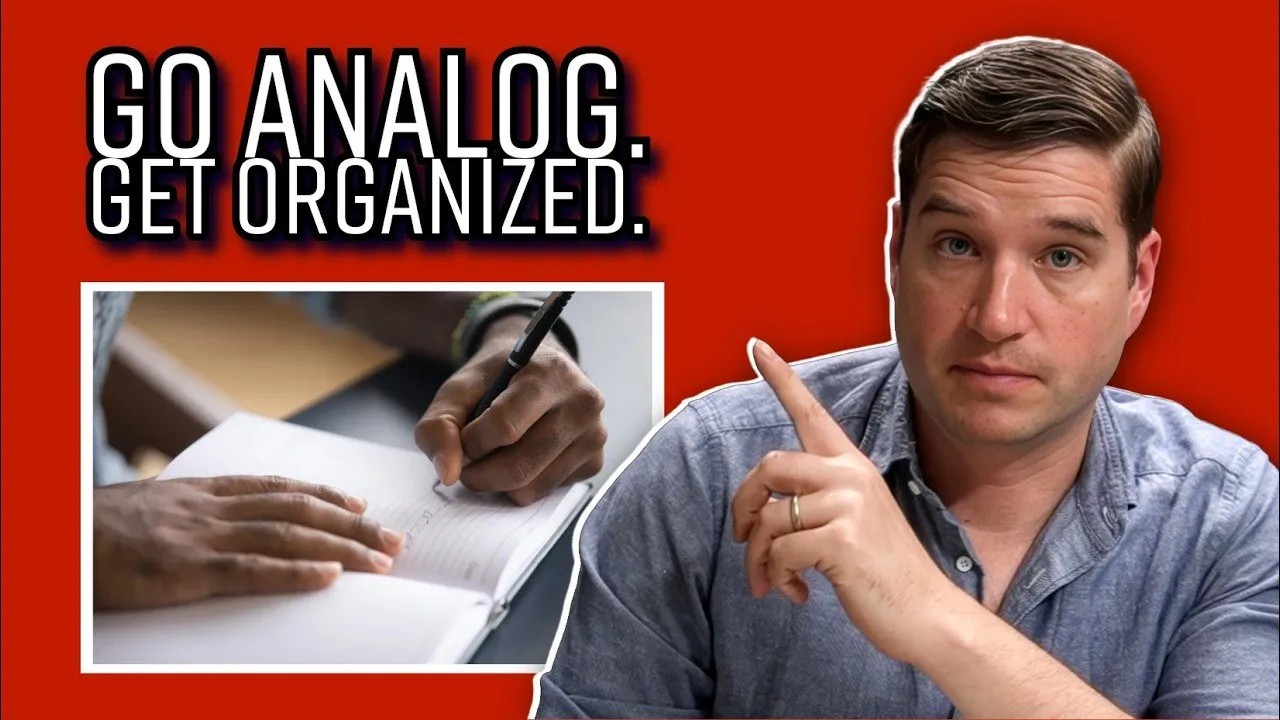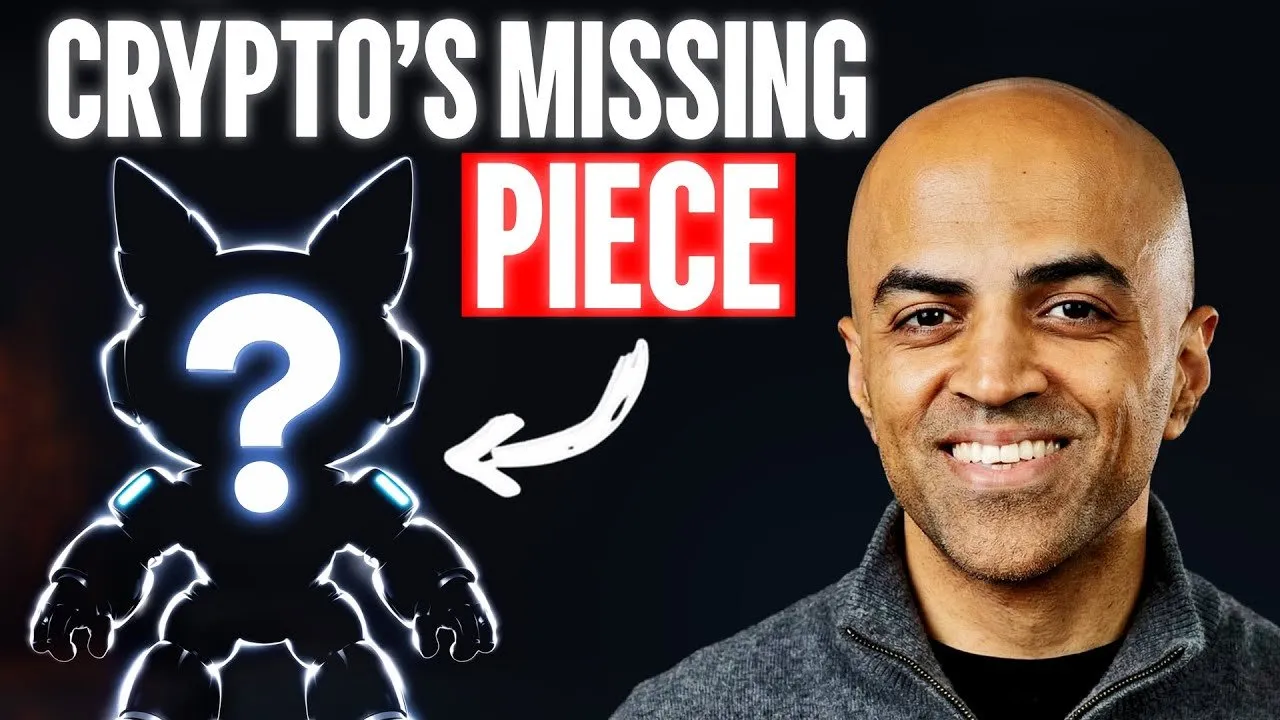Table of Contents
Bryan Johnson sold Braintree for $300M not to get rich, but to fund his mission: earning respect from people 500 years in the future. Here's his radical approach to wealth.
Discover how one entrepreneur views money as purely functional, lives on $20K monthly despite nine-figure wealth, and structures everything around 25th-century approval.
Key Takeaways
- Bryan sold Braintree for $300M with a predetermined mission: fund something that would earn respect from the 25th century rather than accumulate wealth for lifestyle
- Despite massive wealth, he maintained $10-20K monthly spending while renting a $5K home, viewing money as purely functional rather than lifestyle enhancement
- He invested $100M in a deep tech venture fund plus $64M in Kernel (brain interface company), deploying nearly all liquid capital into mission-aligned projects
- His 10-year timeline from age 34-44 was designed to find his legacy project, assuming it would take 15+ years to build anything historically significant
- The "Don't Die" philosophy emerged as his ultimate mission—positioning death prevention as humanity's fundamental organizing principle above capitalism or religion
- 60-70% of his remaining wealth is illiquid in private investments, which he now regrets as cash accessibility became more important than investment returns
- He measures success by potential historical compression, asking what will matter when the 25th century looks back and compresses our era into 2-3 major developments
- Blueprint achieved "best biomarkers of anybody on planet Earth" status, making him statistically the healthiest person among 8 billion people through scientific optimization
- His goal is building the "fastest growing ideology in human history" rather than personal wealth accumulation or traditional business success metrics
Timeline Overview
- 02:19–06:48 — Braintree Genesis: Building payments company from age 27-34, bootstrapping for years, accidentally discovering payments through door-to-door credit card sales
- 06:48–13:13 — Post-Exit Strategy: $300M after-tax exit, creating $100M venture fund for deep tech, $64M investment in Kernel brain interface company
- 13:13–18:23 — Legacy Discovery Process: 12 dinner conversations across US to map what not to do, spending years finding the historically significant mission
- 18:23–24:28 — Time Compression Philosophy: Understanding how history compresses eras into 2-3 major developments, seeking to survive historical compression
- 24:28–26:02 — Don't Die Emergence: Positioning death prevention as fundamental organizing principle above all other human systems and ideologies
- 26:02–27:20 — Financial Structure: Current spending patterns, investment regrets about illiquidity, maintaining frugal lifestyle despite massive wealth
- 27:20–29:45 — Blueprint Success: Achieving world's best health biomarkers, building consumer business around personal optimization protocols
- 29:45–35:46 — Investment Philosophy: Deploying remaining $200M+ into mission rather than wealth accumulation, prioritizing legacy over returns
- 35:46–41:01 — Historical Inspirations: Drawing wisdom from Confucius, Buddha, Jesus, Muhammad, Adam Smith as OS-level civilization builders
Best Quotes and Analysis
"I want to earn the respect of the 25th Century—that's the only game I care about playing."
- Analysis: This quote reveals Bryan's fundamental reframe of success metrics from peer validation to historical significance. By setting his approval system 500 years in the future, he eliminates short-term social pressure and focuses purely on contributions that survive historical compression.
"I was entirely focused on making money and then changing the course of humanity because the greatest contributions were rarely appreciated in their time."
- Analysis: This insight demonstrates sophisticated understanding of innovation cycles and social resistance. Bryan recognized that transformational work faces predictable opposition, making contemporary approval a poor indicator of ultimate value or correctness.
"Most people's lives are compressed into one, maybe two sentences, and over time history compresses time—our era will be compressed into two or three things."
- Analysis: The compression philosophy reveals why Bryan dismisses wealth accumulation as meaningless. If entire centuries get reduced to a few major developments, only contributions that survive this compression process have lasting value.
"Don't die is played more than capitalism, don't die is played more than any religion—it is the fundamental ideology of our reality."
- Analysis: This reframes death prevention from personal health optimization to species-level organizing principle. Bryan positions his work as addressing the most fundamental human drive that transcends all other systems and beliefs.
"I could have taken that capital and made it worth like 10 billion by now by doing something that is boring and easy, but who cares? It's totally insignificant from the 25th Century perspective."
- Analysis: This demonstrates complete philosophical separation from wealth optimization. Bryan's willingness to forgo massive financial returns for legacy work shows how historical perspective can override traditional success metrics.
"The only problem I have is illiquid investments—cash is king, never ever make your money illiquid when you're an entrepreneur."
- Analysis: This practical regret reveals tension between mission funding and investment strategy. Despite his philosophical approach, Bryan learned that accessibility trumps returns when building world-changing projects.
The 25th Century Success Framework: Redefining Achievement
- Bryan's success metrics completely bypass contemporary validation in favor of historical significance, asking what people 500 years from now will consider meaningful contributions
- The 10-year discovery timeline from age 34-44 was based on prime achievement years (20-60) and realistic expectations that finding historically significant work takes substantial exploration time
- Historical compression philosophy recognizes that entire eras get reduced to 2-3 major developments, making only civilization-level contributions worthy of pursuit
- The framework eliminates social pressure and peer comparison by setting approval systems so far in the future that current opinions become irrelevant
Bryan's 25th-century framework solves a fundamental problem in human achievement: the tension between social validation and meaningful work. Most entrepreneurs optimize for peer approval, market feedback, or financial metrics that may be historically irrelevant. By setting his reference point 500 years in the future, Bryan eliminates noise from contemporary opinion while focusing purely on contributions that survive historical compression. This approach requires extraordinary confidence and philosophical sophistication, but enables pursuit of truly transformational work without social friction.
The Functional Money Philosophy: Wealth as Pure Tool
- Despite $300M+ net worth, Bryan maintained $10-20K monthly spending including $5K rent, treating money as purely functional rather than lifestyle enhancing
- All major capital deployments ($164M total) went toward mission-aligned projects rather than diversification or wealth preservation strategies
- Investment decisions are evaluated solely on mission advancement rather than financial returns, leading to deliberate sacrifice of wealth optimization opportunities
- The frugal approach enables maximum capital deployment toward legacy work while maintaining basic living standards without lifestyle inflation
Bryan's relationship with wealth represents pure instrumentalism—money exists solely to advance his historical mission rather than provide personal benefit. This philosophy enables massive capital deployment that would terrify conventional wealth managers but makes perfect sense within his framework. The $164M investment in potentially unprofitable ventures appears reckless from financial perspectives but rational from legacy perspectives. This demonstrates how philosophical clarity about ultimate goals can override traditional financial optimization.
The Don't Die Ideology: Death as Organizing Principle
- "Don't Die" emerged from systematic analysis of what organizing principles could survive historical compression and unite human behavior across all systems
- The framework positions death prevention as more fundamental than capitalism, religion, or politics—the underlying drive that all other human systems ultimately serve
- Blueprint's achievement of "world's best biomarkers" provides proof-of-concept that systematic optimization can achieve unprecedented health outcomes
- The ideology aims to become "fastest growing in human history" by addressing the most universal human concern across all cultures and belief systems
Bryan's Don't Die philosophy represents sophisticated ideological engineering—identifying the most fundamental human drive and building comprehensive frameworks around it. Unlike other ideologies that compete with existing belief systems, Don't Die positions itself as the underlying principle that all other systems ultimately serve. This universality could enable adoption across diverse cultures and beliefs without requiring abandonment of existing frameworks. The approach demonstrates how entrepreneurs can innovate at the ideological level rather than just technological or business model levels.
Investment Strategy: Mission Over Returns
- The $100M deep tech venture fund focused on synthetic biology, genomics, and nanotech to understand humanity's technological trajectory rather than optimize financial returns
- Kernel's $64M investment in brain interface technology aligned with AI integration thesis despite uncertain commercial prospects
- Current regret about 60-70% illiquid investments reveals tension between mission funding needs and portfolio accessibility requirements
- Blueprint business model accepts low margins and operational complexity to bring excellence to food protocols rather than maximize profitability
Bryan's investment approach violates conventional portfolio management by prioritizing mission alignment over diversification or return optimization. The willingness to deploy 80%+ of capital into illiquid, high-risk ventures would horrify traditional wealth managers but makes sense within his framework. His regret about illiquidity demonstrates practical learning—even mission-driven entrepreneurs need cash accessibility for opportunity capture. This suggests optimal strategies might balance mission alignment with tactical flexibility rather than pure philosophical purity.
Common Questions
Q: How much is Bryan Johnson worth now and how does he spend it?
A: Approximately $200-300M with 60-70% illiquid, spending $10-20K monthly on basics while deploying remaining capital into Don't Die mission.
Q: What was his strategy after selling Braintree for $300M?
A: Invested $164M total into deep tech venture fund and Kernel brain interface company to explore technological frontiers aligned with historical mission.
Q: Why does he live so frugally despite massive wealth?
A: Views money as purely functional tool for mission advancement rather than lifestyle enhancement, maintaining basic needs while maximizing capital deployment.
Q: What is the "Don't Die" philosophy and why does it matter?
A: Positioning death prevention as humanity's fundamental organizing principle that transcends capitalism, religion, and politics as universal human drive.
Q: How does he measure success differently than other entrepreneurs?
A: Success metrics based on 25th-century respect and historical compression survival rather than financial returns, peer validation, or contemporary approval.
Conclusion
Bryan Johnson's approach to wealth and legacy represents a radical departure from conventional success frameworks, prioritizing historical significance over financial optimization or social validation. His willingness to deploy nearly all capital toward mission-aligned projects demonstrates how philosophical clarity can enable extraordinary risk-taking.
Practical implications
• Develop historical perspective frameworks for evaluating opportunities based on long-term significance rather than short-term validation or financial returns
• Separate mission funding from wealth optimization by consciously choosing between legacy building and financial accumulation rather than attempting both simultaneously
• Maintain functional relationship with money by treating wealth as pure tool rather than lifestyle enhancer, enabling maximum capital deployment toward meaningful work
• Design success metrics independent of peer approval by setting reference points beyond contemporary social validation to reduce noise and social pressure
• Plan for illiquidity challenges when making mission-driven investments by maintaining sufficient cash reserves for opportunity capture and operational flexibility
• Consider ideological innovation opportunities beyond technological or business model innovation by identifying universal human drives that transcend existing belief systems
• Embrace contrarian timelines by accepting that meaningful work may take decades to achieve recognition or market validation
• Structure organizations around mission clarity by aligning all decisions with ultimate legacy goals rather than optimizing for multiple competing objectives
• Practice philosophical sophistication by developing frameworks that can withstand social pressure and maintain focus despite criticism or misunderstanding
• Balance mission purity with practical constraints by learning from Bryan's illiquidity regrets and maintaining tactical flexibility within strategic clarity
The deeper lesson is that extraordinary achievements may require extraordinary philosophical frameworks that completely redefine conventional success metrics—but this reframing can enable pursuit of truly transformational work that wouldn't be possible within traditional optimization systems.





